Robotic Process Automation and the Future of Work: What You Need to Know
29 March 2025
The future is already here, folks! We’re living in a time when robots are no longer just a sci-fi dream. The concept of automation has been around for decades, but now it’s taking giant leaps with something called Robotic Process Automation (RPA). You’ve probably heard the term tossed around, but what exactly is it? And more importantly, how is it shaping the future of work? Let’s dive into it!
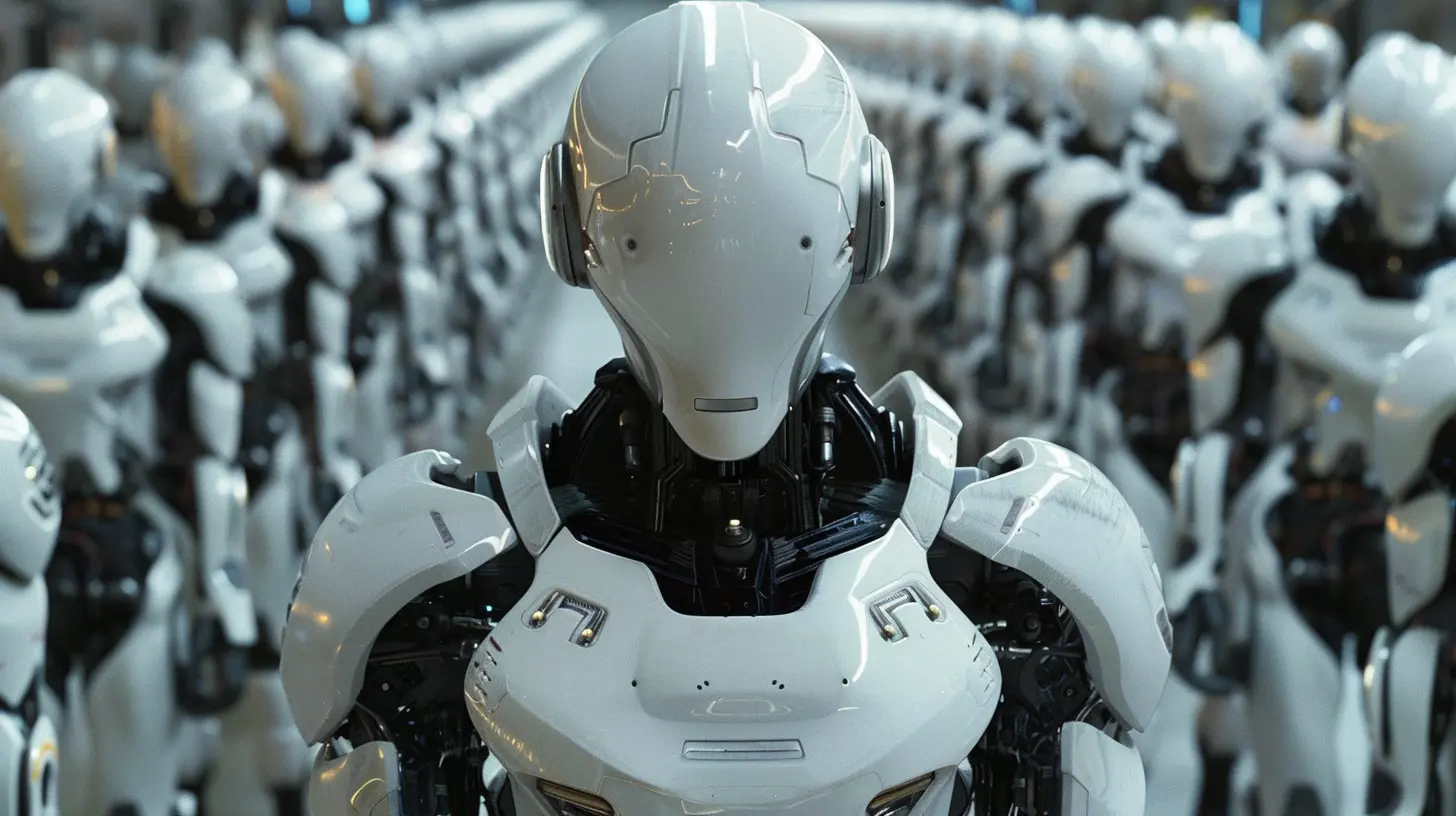
What Exactly is Robotic Process Automation?
Alright, let’s start with the basics. Robotic Process Automation (RPA) is a technology that uses software robots, or “bots,” to automate repetitive tasks typically performed by humans. These tasks are often rule-based, routine, and involve processing structured data—think about things like data entry, invoice processing, or even customer service inquiries.Instead of having a human click around and fill in forms, an RPA bot can do it in a fraction of the time, with fewer errors. And no, these bots aren’t the physical robots you might be imagining. They’re more like virtual workers, quietly running behind the scenes and seamlessly interacting with your existing software.
How Does RPA Work?
Without getting too techy, here’s how RPA functions. RPA bots mimic the actions of a human interacting with a computer system. They can log into applications, move files, copy data from one place to another, and even make decisions based on predefined business rules. They’re like highly efficient assistants who never get tired or bored. Sounds pretty cool, right?But here’s the kicker: RPA is scalable. If you need to process 10,000 invoices one day and 20,000 the next, just spin up more bots. It’s that flexible!
Difference Between RPA and AI
You might be thinking, “Wait, isn’t this the same thing as Artificial Intelligence (AI)?” Not exactly. While AI and RPA often work hand in hand, they’re different technologies. RPA is rule-based—it follows a specific set of instructions. AI, on the other hand, is more about learning and making decisions based on data. AI is like a student constantly learning new things, while RPA is a worker who follows the rules to the letter.In fact, when you combine RPA with AI, you unlock massive potential. While RPA handles the grunt work, AI can make more complex decisions, analyze large datasets, and even predict future outcomes. Imagine a bot that not only processes invoices but also analyzes spending patterns and suggests ways to cut costs. That’s the future we’re heading toward!
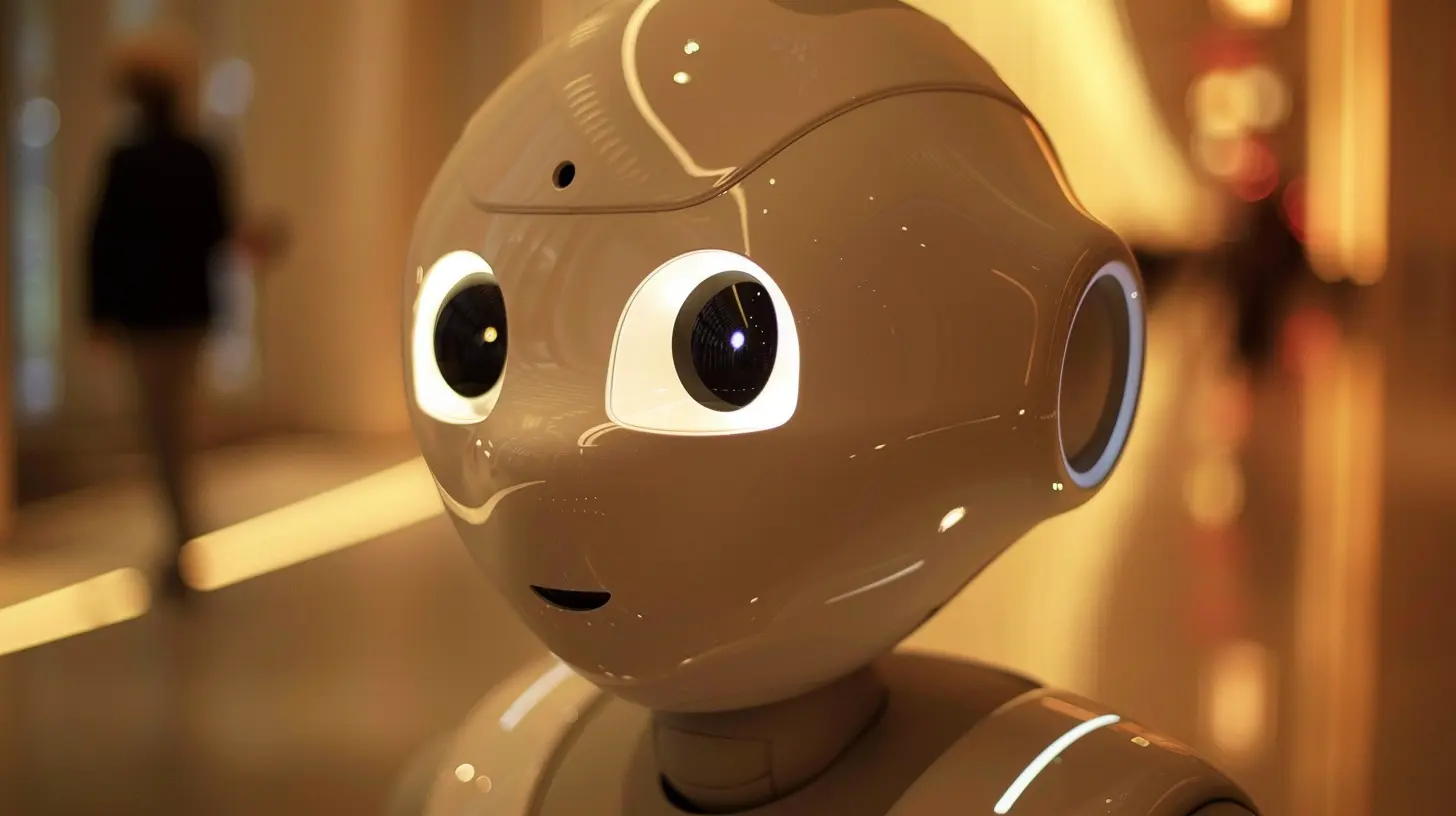
The Current State of RPA in the Workplace
Now that you know what RPA is, let’s talk about where it’s at today. Spoiler: It’s already making waves in a lot of industries.Industries Embracing RPA
RPA is everywhere—from banking and healthcare to retail and manufacturing. Banks use RPA to process loans and verify customer documents. Hospitals use it to automate patient data entry. Retailers? They’re using it to manage inventory and handle customer inquiries.But the key reason why industries are jumping on the RPA bandwagon is simple: efficiency. By automating repetitive tasks, companies can cut costs, reduce human error, and free up employees to focus on higher-value work.
Real-World Examples
Let’s take a closer look at some real-world examples:- Finance: One of the largest banks in the world, HSBC, uses RPA to process millions of transactions daily. RPA bots help them manage compliance, reducing the risk of regulatory penalties.
- Healthcare: Cleveland Clinic, a renowned medical institution, utilizes RPA to handle billing and insurance claims, allowing healthcare professionals to focus more on patient care.
- Retail: Amazon, the e-commerce giant, uses RPA to manage its vast inventory and streamline its supply chain process.
In short, businesses are automating like there’s no tomorrow. But what does that mean for workers? Should we be worried?
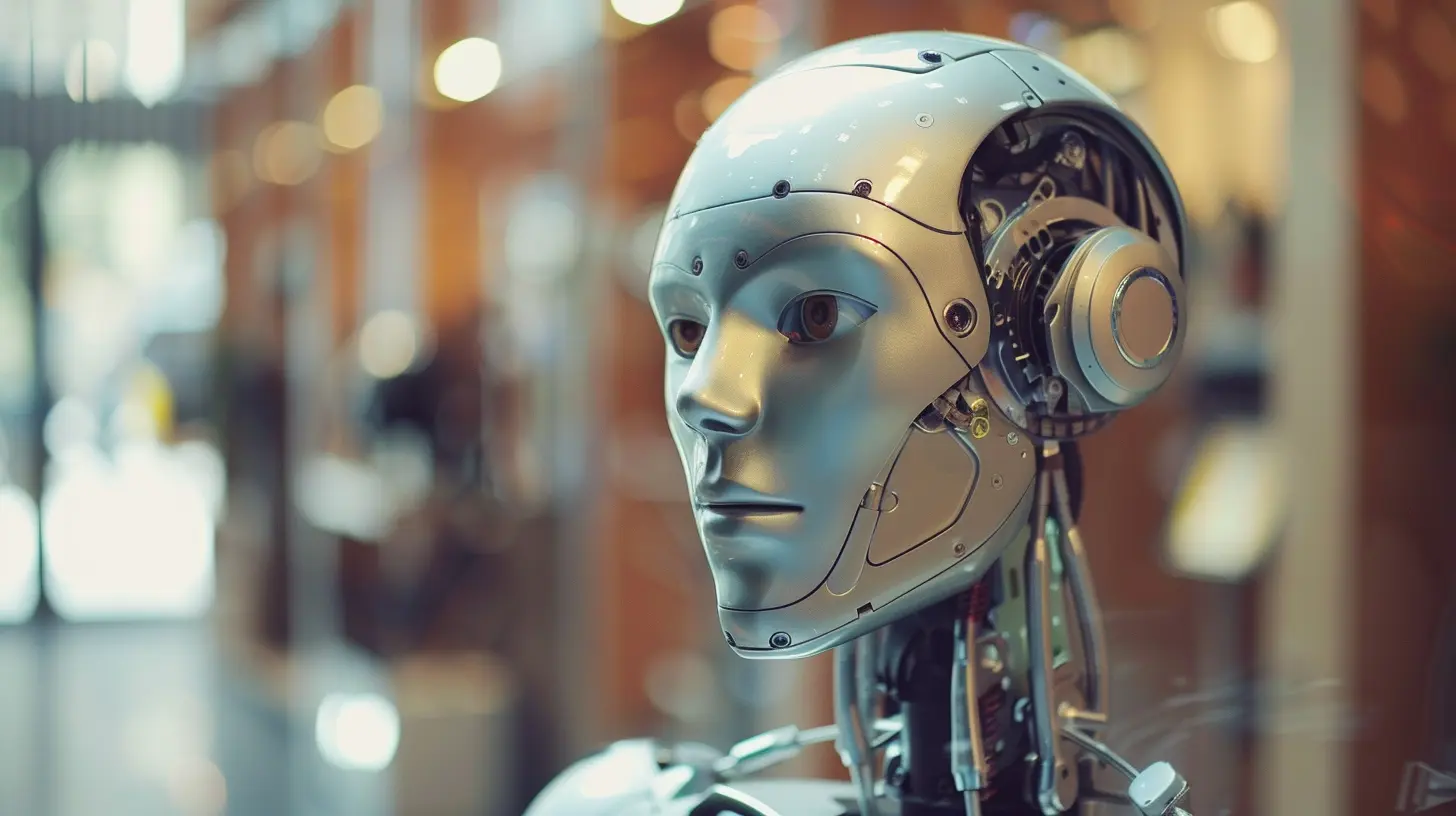
RPA and Job Displacement: Should We Be Afraid?
This is the big question on everyone’s mind: Will robots take our jobs?Let’s be real. Automation, including RPA, will replace some jobs—particularly those that are repetitive and easily automated. But here’s the thing: RPA won’t steal all the jobs. Instead, it’s going to shift the kinds of jobs we do. Rather than eliminating the need for humans, RPA is changing the way we work by taking over the mundane tasks that no one really enjoys doing anyway.
Job Evolution, Not Job Elimination
Think of it this way: back in the 19th century, when machines started to replace manual labor in factories, people were terrified that they’d lose their jobs. But what actually happened? The economy evolved, and new types of jobs were created. The same is happening now with RPA.By automating low-value tasks, companies can focus on upskilling their workforce. Employees can transition into roles that require critical thinking, creativity, and human interaction—things that robots aren’t particularly good at. So, instead of worrying about job losses, we should focus on job evolution.
The Rise of Hybrid Work Environments
We’re also seeing the rise of hybrid work environments, where humans and bots work side by side. Think of RPA bots as your digital coworkers—they handle the boring stuff, freeing you up to tackle more strategic tasks. For example, an accountant might use RPA to automate data entry and spend more time analyzing financial trends or advising clients.In this sense, RPA is more like a coworker that helps you do your job better, not something that’s trying to steal your paycheck.
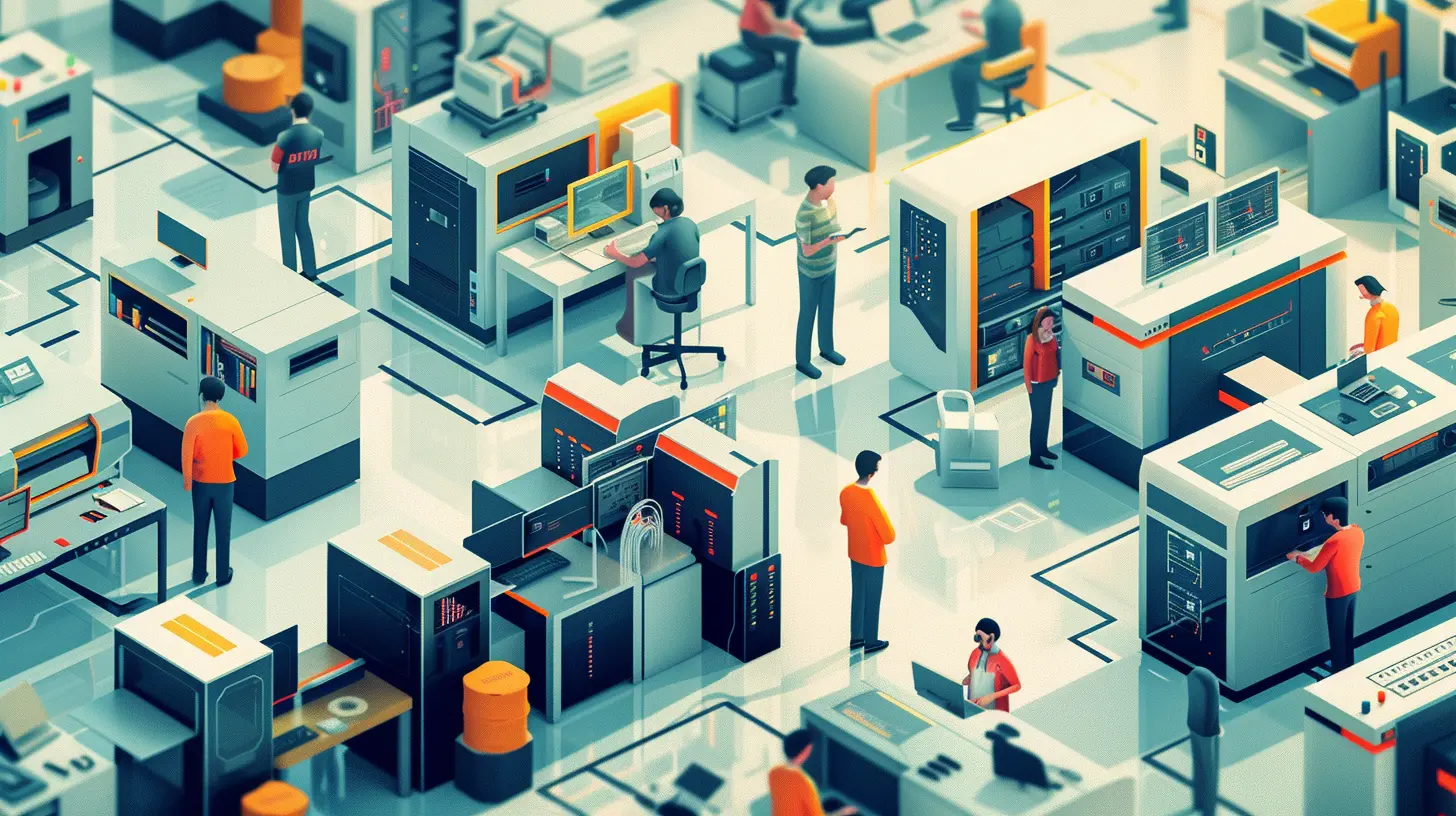
Benefits of RPA for Businesses and Employees
We’ve touched on some of the benefits of RPA, but let’s break it down a bit more:1. Increased Efficiency
RPA bots work 24/7. They don’t need coffee breaks, and they sure don’t take vacation days. This means tasks that used to take hours, or even days, can be completed in minutes.2. Cost Savings
By automating tasks, companies can reduce labor costs. Plus, since bots make fewer errors, businesses can avoid costly mistakes that result from human error.3. Improved Accuracy
Humans are prone to making mistakes, especially when performing repetitive tasks. RPA bots, on the other hand, follow rules precisely, ensuring greater accuracy.4. Employee Satisfaction
No one enjoys spending their day doing mind-numbing tasks. By automating these, employees are freed up to focus on more meaningful and engaging work, boosting productivity and job satisfaction.5. Scalability
Need to process more transactions during the holiday season? No problem. RPA can easily be scaled up or down to meet business demands, offering flexibility that human workers simply can’t match.Challenges and Limitations of RPA
As great as RPA sounds, it’s not without its challenges. Let’s look at a few limitations that businesses need to consider.1. Not a One-Size-Fits-All Solution
RPA works best with structured data and repetitive tasks. It’s not ideal for processes that require human judgment or creativity. For instance, while RPA can process invoices, it can’t negotiate with vendors or handle complex customer service issues.2. Initial Setup Costs
While RPA can save businesses money in the long run, the initial setup can be expensive. Companies need to invest in software, hardware, and training to ensure successful RPA implementation.3. Maintenance and Updates
Just like any software, RPA bots require regular maintenance and updates. If a company’s processes change, the bots need to be reprogrammed, which can be time-consuming and costly.4. Job Displacement Concerns
While RPA creates new opportunities, there’s no denying that some jobs will be displaced. Companies need to be proactive about upskilling their workforce to ensure a smooth transition.
The Future of Work with RPA
So, what does the future hold? One thing is clear: RPA is here to stay. As technology continues to evolve, RPA will become even more sophisticated. We’re already seeing advancements in Intelligent Automation (IA), where RPA is combined with AI to create smarter bots that can make decisions, learn from data, and even interact with customers in more meaningful ways.The Human Touch Still Matters
At the end of the day, though, the human touch will always be important. While RPA can handle routine tasks, it can’t replace human creativity, emotional intelligence, or problem-solving abilities. As automation becomes more prevalent, the value of these human skills will only increase.Upskilling and Lifelong Learning
To thrive in this new era of automation, workers will need to embrace lifelong learning. Upskilling and reskilling will become essential as jobs evolve. The ability to adapt and learn new technologies will be key to staying competitive in the workforce.Conclusion: Embrace the Future
RPA is transforming the way we work, and there’s no going back. But rather than fearing this change, we should embrace it. Automation isn’t about replacing humans—it’s about enhancing our abilities and freeing us up to focus on the work that truly matters.By combining the power of RPA with human creativity and critical thinking, we’re shaping a future where work is more efficient, productive, and fulfilling. So buckle up, because the future of work is automated—and it’s looking bright.
all images in this post were generated using AI tools
Category:
Robotic Process AutomationAuthor:

John Peterson
Discussion
rate this article
9 comments
Zareth Reed
RPA revolutionizes efficiency, reshaping workforce dynamics and future job roles.
May 16, 2025 at 10:28 AM

John Peterson
Thank you! Indeed, RPA is transforming how we work, enabling greater efficiency and prompting a re-evaluation of job roles for the future.
Katie Lane
RPA will redefine workflows, enhancing efficiency while reshaping job roles in industries.
April 9, 2025 at 4:21 AM

John Peterson
Thank you for your comment! Indeed, RPA has the potential to streamline workflows and transform job roles, creating new opportunities for innovation and skill development.
Wesley Ward
Embrace the future with Robotic Process Automation! This transformative technology empowers us to enhance efficiency and creativity in our work. Together, we can innovate, adapt, and thrive in an evolving landscape. The future is bright!
April 8, 2025 at 6:34 PM

John Peterson
Thank you for your insightful comment! Embracing Robotic Process Automation is indeed key to unlocking new levels of efficiency and innovation in the workplace. Let's continue to adapt and thrive together!
Rhiannon McNair
Robotic Process Automation is reshaping workflows, enhancing efficiency, and redefining roles in the future workplace.
April 7, 2025 at 10:35 AM

John Peterson
Thank you for your insightful comment! Indeed, RPA is transforming workflows and roles, paving the way for a more efficient future workplace.
Anabella Chavez
Great insights on RPA! It’s crucial to embrace these technologies while ensuring a focus on upskilling and adapting our workforce for the evolving job landscape.
April 7, 2025 at 5:00 AM

John Peterson
Thank you for your feedback! I completely agree that upskilling is essential for maximizing the benefits of RPA while preparing our workforce for future challenges.
Hayden Elliott
Robotic Process Automation enhances efficiency, but balancing automation with human skills is crucial for the future workforce.
April 5, 2025 at 8:38 PM

John Peterson
Absolutely! Striking the right balance between automation and human skills is key to maximizing the benefits of RPA while fostering a skilled workforce for the future.
Alexia Patel
Great insights on Robotic Process Automation! It's fascinating to see how technology is reshaping the workplace. Understanding its implications is essential for navigating the future of work. Embracing these changes can lead to new opportunities and enhance our productivity. Looking forward to more discussions!
April 3, 2025 at 8:41 PM

John Peterson
Thank you for your thoughtful comment! I completely agree—embracing RPA is key to unlocking new opportunities in the workplace. Excited for more discussions ahead!
Nyxaris Wells
Robotic Process Automation (RPA) is reshaping the workforce landscape by streamlining repetitive tasks, enhancing productivity, and enabling employees to focus on strategic initiatives. Understanding RPA's implications is crucial for adapting to future workplace dynamics and harnessing its transformative potential.
April 2, 2025 at 1:02 PM

John Peterson
Thank you for your insightful comment! You're absolutely right—RPA's impact on productivity and strategic focus is a game-changer for the future of work. Understanding its implications will be key for both organizations and employees.
Rayna Lane
Embrace the wave of Robotic Process Automation! It's not just about efficiency; it's an opportunity for creativity and innovation in the workplace. As we adapt to this exciting future, let’s leverage technology to enhance our skills and focus on what truly matters—human ingenuity and collaboration!
March 30, 2025 at 3:34 AM

John Peterson
Absolutely! Embracing RPA not only streamlines processes but also fosters creativity and collaboration, allowing us to harness our human potential for innovation.
MORE POSTS

Wearable Payment Solutions: A Glimpse into the Cashless Future
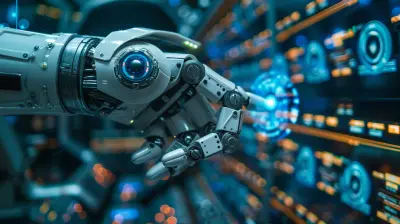
How Robotic Process Automation Can Help Scale Your Business Operations

The Evolution of Headphone Audio Drivers: What’s Inside?

Robotic Process Automation: A Game-Changer for Small Businesses

The Role of Headphones in Creating the Ultimate Home Theater Setup
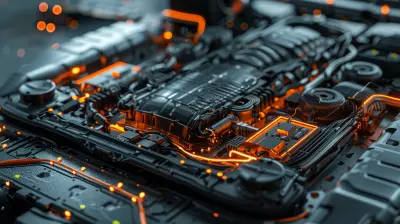
How Battery Management Systems Are Enhancing Safety

The Role of Blockchain in Securing Autonomous Vehicle Networks